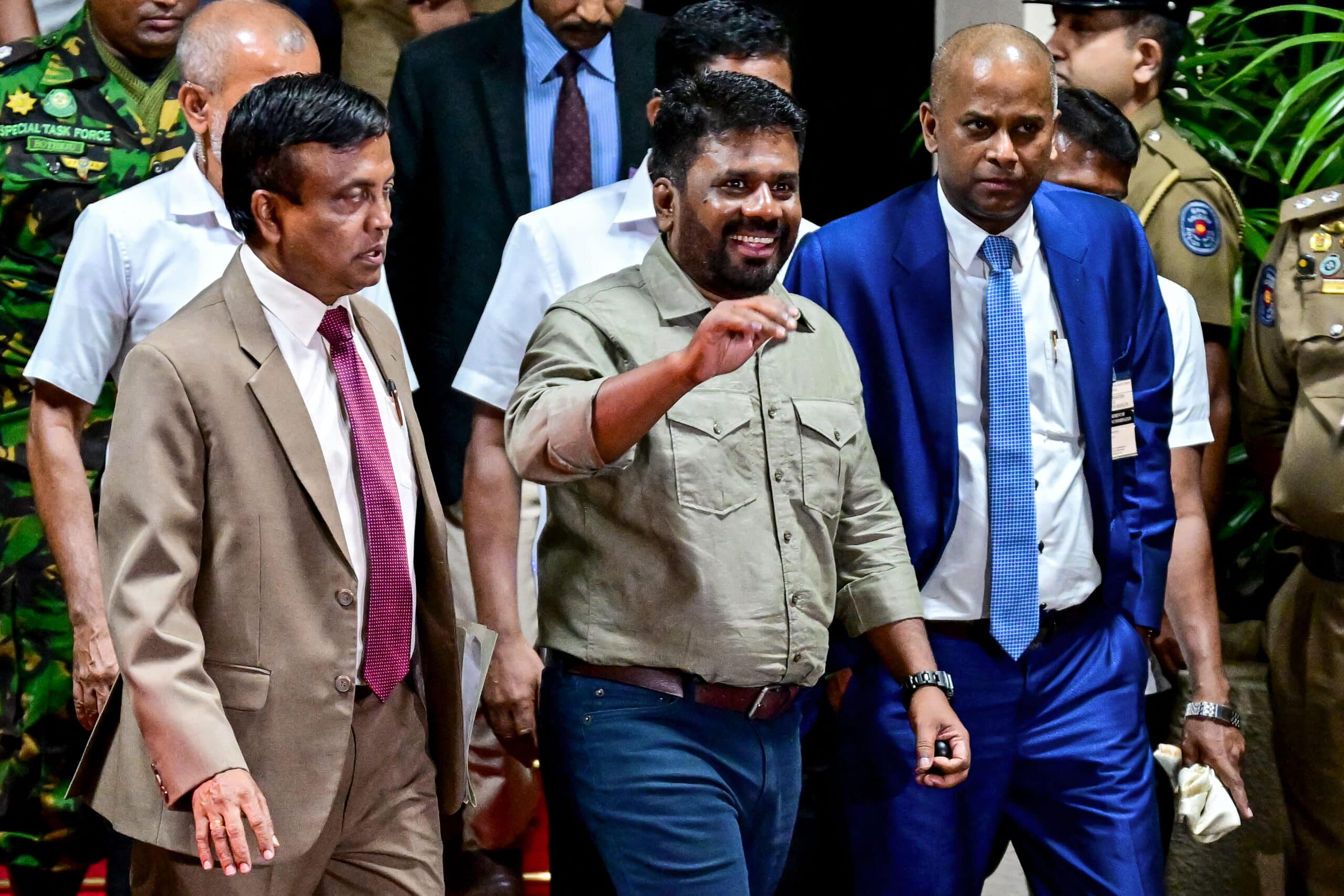Sri Lankan leftist leader to take office after landslide election win

Sri Lanka’s president-elect Anura Kumara Dissanayaka (C), gestures as he leaves the Election Commission office in Colombo on September 22, 2024, following his victory in the country’s presidential election. Agence France-Presse
COLOMBO — Sri Lanka’s leftist president-elect will be sworn into office Monday after simmering public anger over the island nation’s unprecedented economic crisis propelled him to a landslide poll win.
Self-avowed Marxist Anura Kumara Dissanayaka, of the People’s Liberation Front (JVP), won nearly 1.3 million more votes than his nearest rival.
The previously fringe politician, whose party led two failed uprisings that left tens of thousands dead, saw a surge of support after the country’s 2022 economic meltdown forced painful hardships upon ordinary Sri Lankans.
READ: Sri Lanka votes in first poll since economic collapse
Dissanayaka, 55, said on Sunday that his victory had been “paved by the sacrifices of so many who gave their sweat, tears and even their lives for this cause”.
Article continues after this advertisement“Together, we stand ready to rewrite Sri Lankan history,” he added.
Article continues after this advertisementDissanayaka was due to be sworn in at 9:00 am (0330 GMT) at the colonial-era President Secretariat in Colombo, election commission officials said.
He will succeed outgoing president Ranil Wickremesinghe, who took office at the peak of the financial crisis following the government’s first-ever foreign debt default and months of punishing food, fuel and medicine shortages.
READ: Sri Lanka could tip back to chaos if six-time PM voted president
Wickremesinghe, 75, imposed steep tax hikes and other austerity measures per the terms of an International Monetary Fund bailout.
His policies ended the shortages and returned the economy to growth but left millions struggling to make ends meet.
“I can confidently say that I did my best to stabilize the country during one of its darkest periods,” he said in a statement after placing a distant third in Saturday’s poll.
Dissanayaka has vowed to press ahead with the IMF rescue package negotiated by his predecessor last year but modify its terms in order to deliver tax cuts.
“It is a binding document, but there is a provision to renegotiate,” Bimal Ratnayake, a senior member of Dissanayaka’s party, told AFP.
Legacy of violence
Dissanayaka’s party led two rebellions in the 1970s and 1980s that left more than 80,000 people dead before renouncing violence.
It had been a peripheral player in Sri Lankan politics in the decades since, winning less than four percent of the vote during the most recent parliamentary elections in 2020.
But Sri Lanka’s crisis proved an opportunity for Dissanayaka, who saw his popularity rise after pledging to change the island’s “corrupt” political culture.
The 55-year-old labourer’s son was a JVP student leader during the second insurrection and has described how one of his teachers sheltered him to save him from government-backed death squads that killed party activists.
He counts famous Marxist revolutionary Che Guevara among his heroes.
Since his rise to popularity, he has softened some policies, saying he believes in an open economy and is not totally opposed to privatisation.